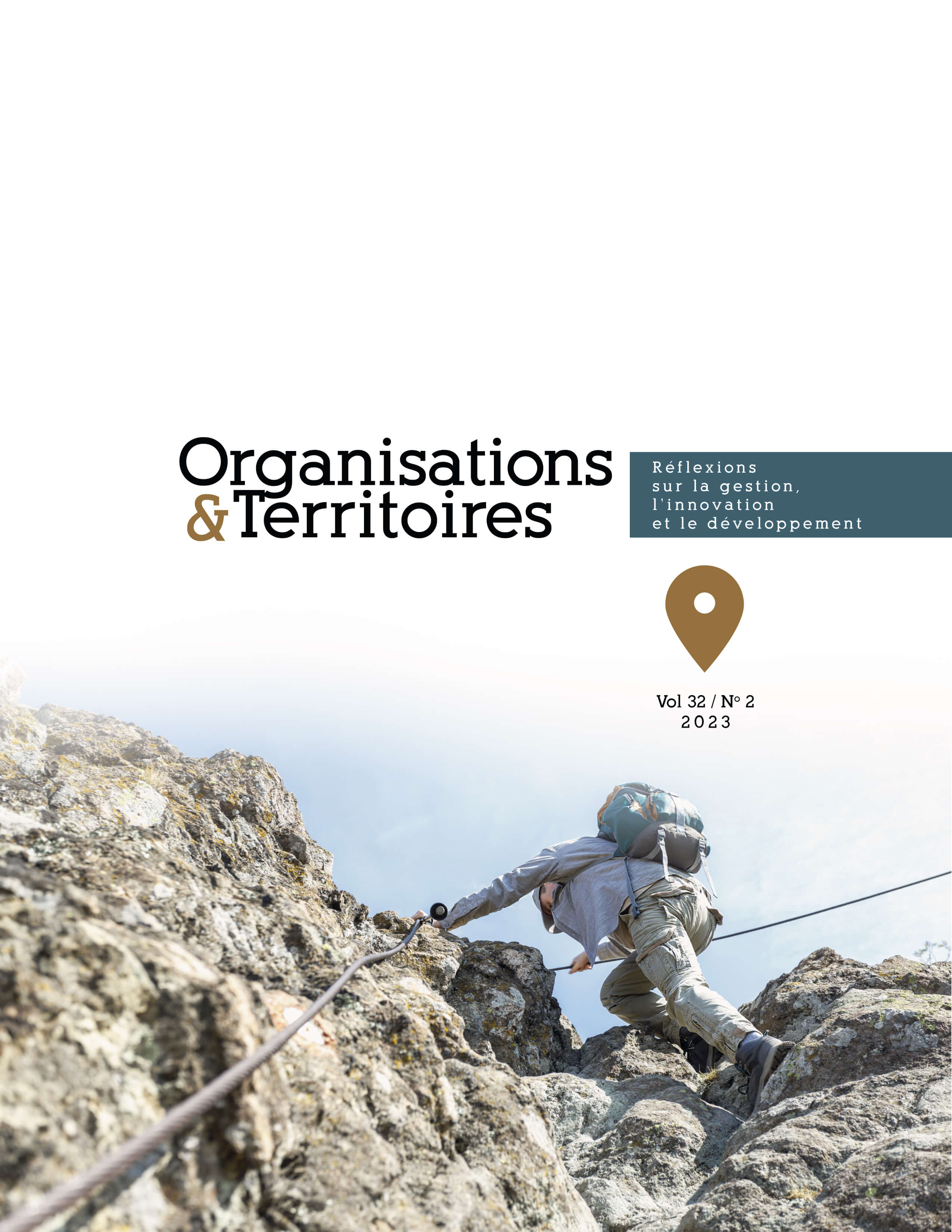Conciliation emploi-famille : des enjeux et des options dans des territoires différents
DOI:
https://doi.org/10.1522/revueot.v32n2.1606Keywords:
Work-family reconciliation, territory, region, work-life, genderAbstract
If numerous professional fields and activity sectors were the subject of research work done on professional life and personal-family life, territories and regions were less studied. Yet, territories and their inhabitants constitute the actors who may influence this reconciliation, as the labour market is differentiated by regions. We thus wanted to determine to what extent there may be a territorial organizational culture, which could translate into territorial or regional differences regarding the articulation of professional-personal-family life. We here cover the differences regarding the implementation of reconciliation measures, the perception of associated obstacles, the positive and negative effects perceived, and the factors that could influence their application. We thus compared three large regions in the province of Quebec; the Montreal metropolitan region, the Quebec City metropolitan region and the peripheral regions (that cover the rest of the province of Quebec, essentially small and medium sized cities). We set the hypothesis that the two metropolitan regions would be similar, but in fact we found out that on many points, Montreal distinguishes itself, although this is not systematically the case. In particular, we observed that information and expertise vary from one region to another, as well as the practices of other firms.



